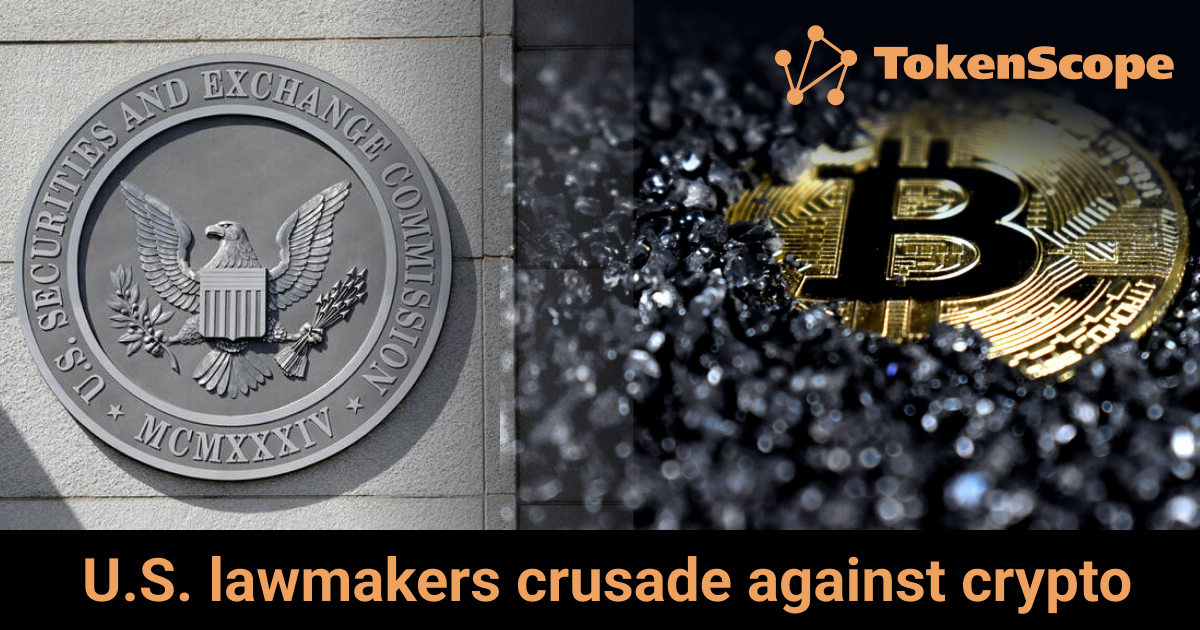
At the end of the year 2022 U.S. Senators Elizabeth Warren and Roger Marshall introduced a bill to counter money laundering, terrorism financing and sanctions circumvention via cryptocurrency.
The Digital Asset Anti-Money Laundering Act (DAAMLA) brought KYC procedures to crypto participants such as wallet providers and miners. It also prohibited financial institutions from transacting with digital asset mixers, such as Tornado Cash, which are tools designed to hide the origin of funds.
The Bill was met with little enthusiasm and was criticized both by lawmakers and industry players for being unworkable and unconstitutional. The Bill didn’t pass Senate hearings and didn’t go anywhere.
A new version of the Bill proposal was reintroduced in 2023. The 2023 edition of the DAAMLA has been largely revised but still contains controversial provisions that seem to be incompatible with current U.S. legal framework.
The most remarkable in this bill proposal was an offer for the U.S. AML/CFT watchdog FinCEN to treat developers of crypto software and regular users who simply run open-source crypto software as «financial institutions». This includes software that mines or validates blockchain transactions, which is the global technical mechanism that empowers Bitcoin, Ethereum and other blockchains. That means that even users running «consumer» miner software, even as a hobby, must set up AML/CFT software and carry out cryptocurrency risk assessment procedures same as financial institutions.
The bill would also extend anti-money laundering reporting requirements to U.S. persons who transact in $10,000 or more in digital assets using accounts outside the USA and require FinCEN to do anti-money laundering compliance examinations for money service businesses like crypto exchanges.
In March 2022 Warren announced building of an «anti-crypto army» as part of her re-election program. Warren believes, without stronger evidence, that cryptocurrencies primarily are being used by criminals to proceed illicit transactions and money laundering. She is constantly calling for increased government regulation or even elimination of the sector.
Warren states that buying bitcoin means «buying air», and as far as central bank digital currency (CBDC) is concerned, she believes «it’s time for us to move in that direction».
After the collapse of the FTX exchange and banking crisis started with the collapse of Silvergate and followed by the large-scale supporting measures carried out by the Fed and the U.S. Treasury which will definitely boost inflation in the future, Warren believes the problems in the banking industry would be solved with CBDC and not crypto.
According to her, Bitcoin is an «ephemeral token» with no value while CBDCs are government-backed digital transfers that could be denominated in national fiat currencies.
Warren’s recent statements are reminiscent of her earlier views on crypto. The Senator has criticized the crypto industry several times, pointing out the energy consumption and criminal use. Announcing the promise of creating an «anti-crypto army» she aims to recruit conservative republicans, bankers, regulators, and watchdog groups.
Nevertheless some crypto experts assume that Warren does not understand in full the role of decentralized cryptocurrencies in the U.S. and global economy and the rise of her anti-crypto activities directly linked to the re-election program. That is one of the reasons that she can change her opinion later having a deep understanding both crypto and banking worlds.